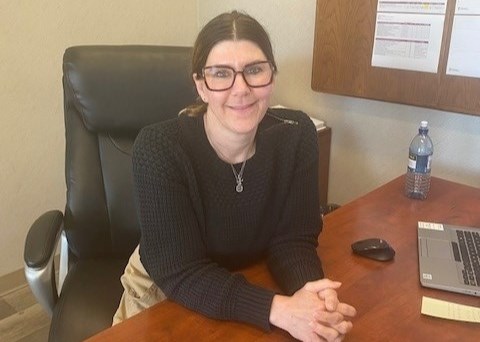ESTEVAN - Estevan's Elaine Walkom's donation of $2 million for a new MRI unit would make a big difference for St. Joseph's Hospital and especially people in the southeast.
While the Ministry of Health reportedly denied the generous donation, the hospital said not only could the hospital accommodate the scanner, but it would become a great asset for the region, according to executive director Candace Kopec.
"We would be absolutely pleased to operate an MRI and to better meet the needs of the province. And if the decision is made to have that in Estevan, we absolutely would work to make that possible," Kopec said in an interview with the Mercury and SaskToday.
"There would be some things that would need to be put into place. We would need to make some changes to our infrastructure to be able to accommodate such a machine."
If it is to proceed, the MRI scanner will be located in the same area as the lab and CT scanner due to the close proximity of other services that are needed for diagnostic imaging procedures. The required changes would include renovating and expanding the diagnostic imaging space, Kopec noted.
She said she had a chance to talk to Walkom shortly after Kopec started with St. Joe's in May to gain a better understanding of her wishes.
"She talked to me about what her wishes were and a little bit of the reasons why. And I just wanted to gain a better understanding of her generous donation," Kopec said. "I think it's always important to know why people want to donate to our facility and to our province."
The next step on behalf of St. Joseph's Hospital is to write a proposal to the government, laying out the details of the project in hopes it can proceed.
"That proposal would really look at costing," Kopec said.
"We are in a really fortunate position that our CEO of Emanuel Health, his previous position was actually responsible for the MRI machines in the province. So, he has a really good understanding of what needs to be done in order to have an MRI machine in a facility and the cost.
"We would be absolutely committed to getting together, doing the costing and writing the proposal. Then the government has a better understanding of what would be involved and even a timeline."
The staffing needs will depend on the MRI model, as well as the demand and the timing of it being operational.
Cutting down on travel time for patients would be one of the biggest benefits of acquiring an MRI scanner, she said. It would also increase the access to the imaging diagnostics for the southeast corner.
"What we have found with our CT scan is we get clients coming in from a good number of locations in the southeast. When you live in rural Saskatchewan, having services as close to home as possible is absolutely a benefit. But if you have to drive, knowing that you can have better access, I might choose to drive to Regina or Yorkton if I can get in next week versus waiting for a longer period of time closer to home. So, it just gives people options based on their needs," Kopec said.
"St. Joseph's is committed to providing quality health care not only to Estevan but also to the southeast. So, if there is an ability for us to have an MRI machine, and if it makes sense to have it located here for the province of Saskatchewan, we would be pleased to be able to do that."
In an email to the Mercury, the Ministry of Health said it thanked Walkom "for her generosity and for her interest in contributing to health care in Estevan".
"The Ministry of Health looks forward to further discussing opportunities to advance health care services in Estevan with Ms. Walkom and St. Joseph’s Hospital Foundation in the near future," the email stated.
"The development of a thorough plan is key to determining if and how a new health care service can be supported and accessible in the long term. The Ministry of Health is actively working with the operator of St. Joseph’s Hospital, Emmanuel Health, to develop a plan to support discussions on this issue."
The Ministry of Health is actively working with the operator of St. Joseph’s Hospital, Emmanuel Health, to develop a thorough plan that will support ongoing discussions on this issue.
"That includes the technical considerations required to determine if and how this new service could be supported and accessible in the long term," the ministry said.






